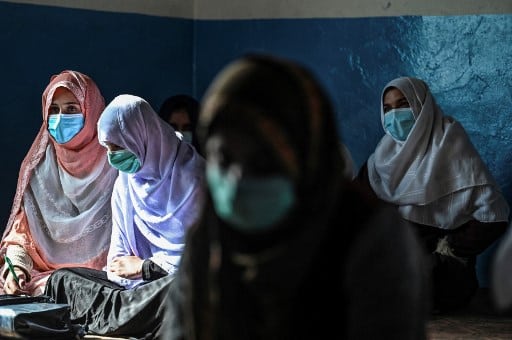Kabul, Afghanistan – Amina, a 15-year-old girl from Kabul, once dreamed of becoming a heart surgeon. Her ambition was sparked when, as a child, she went through a heart surgery performed by the woman who saved her life. Inspired by this moment, Amina was determined to pursue education. But after the Taliban’s return to power in 2021, known as the Islamic Emirate of Afghanistan, her dream – along with the dreams of over a million Afghan girls – was shattered.
“When my father told me that the schools were closed, I was so upset. It felt so terrible,” Amina recalls, her voice trembling under the weight of her lost future. Since the Taliban’s takeover, Amina has had no chance to continue her education. Her story has become a symbol for countless girls in Afghanistan who are facing the same grim reality. The Taliban government’s policy of banning girls from education after the 6th grade has been in place for nearly four years.
Religious schools, or madrasas, have become the only place where girls can receive any form of education. However, these institutions are generally limited to religious teachings and do not offer essential subjects like mathematics, science, or languages. Under the Taliban’s policies, the curriculum in these madrasas is designed to align with their ideological agenda, promoting political and military ideologies while fostering extremist ideas.
The Impact of Anti-Education Policies:
-
Crushed Dreams: Girls like Amina, who aspired to become doctors, scientists, or pursue other professions, now find their futures uncertain as their educational opportunities are systematically blocked.
-
Mental Health Crisis: The deprivation of education has had deep emotional and psychological effects on young girls. Amina, like many others, expresses feelings of sadness, despair, and helplessness.
-
Limited Career Opportunities: With a curriculum focused mainly on religious subjects, girls are not gaining the skills needed to advance in professional careers.
-
Societal and Global Risks: Experts argue that the lack of education for girls is not only harmful to Afghan society but poses a long-term threat to global stability. Without education, girls are more vulnerable to extremist ideologies, which can perpetuate cycles of extremism and insecurity.
The Islamic Emirate, which had initially stated that the ban on girls’ education would be temporary, has made no efforts to reopen schools for girls. Despite this, Amina and many other girls continue to hold onto hope, believing that one day they will be able to attend school and turn their dreams into reality.
“I still believe that one day the Islamic Emirate will reopen schools and universities,” Amina says with determination. “And I will turn my dream into reality and become a heart surgeon.”
At present, however, the educational future of Afghanistan’s young girls is at risk, as their dreams and potential have been silenced under the Taliban’s policies. The world watches, uncertain of when – or if – Afghan daughters will ever regain their right to education.





